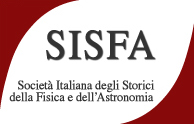Speaker
Description
From a historical point of view, the principle of virtual work and the so-called “principle of conservation” follow different paths and have different origins. Some authors attributed the principle of virtual work to pseudo-Aristotle’s Mechanical Problems. The principle of virtual work was defined by Bernoulli: “for a system of forces that maintains a point, a surface, on a body in equilibrium, the sum of positive energies equals that of negative energies, considered with their absolute value”. Some signs of the “principle of conservation” can be found in Galileo Galilei’s The Dialogue Concerning the Two Chief World Systems: “Now fix it well in mind as a true and well-known principle that the resistance coming from the speed of motion compensates that which depends upon the weight of another moving body”. In Guidobaldo del Monte’s Mechanicorum Liber the concept of virtual work and the compensation of force, time, weight and space seem to be connected. In this talk, I will investigate this connection. Firstly, I present the well-known statements about the roots of the principle of virtual works and the “principle of conservation”. Secondly, I will examine the procedures used by Guidobaldo to study the behaviour of simple machines in equilibrium. Finally, I will analyse the relation between the equilibrium systems subjected to constraint reactions and the proportion of time, force, velocity and space in the Mechanicorum Liber.

